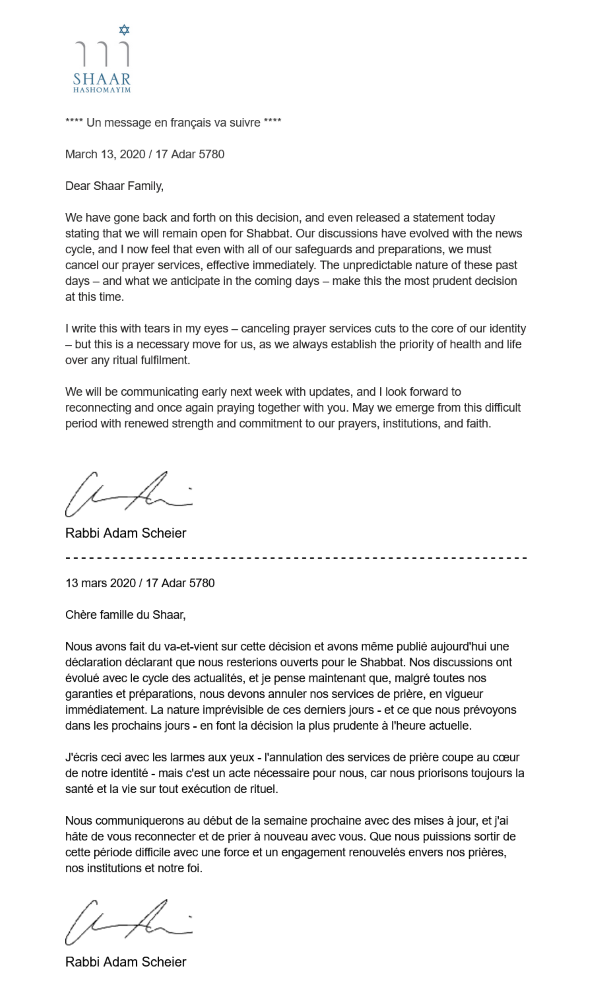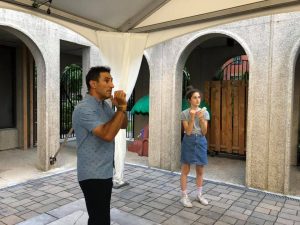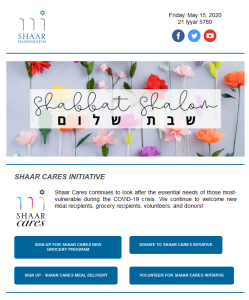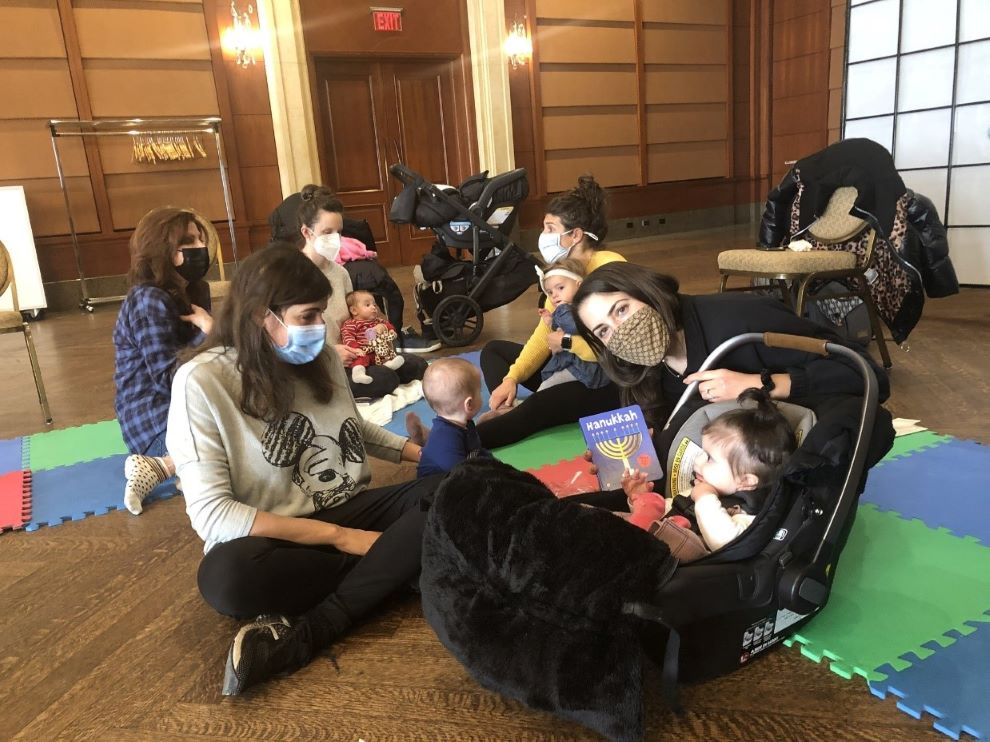Part 13: Covid-19 and the Community
On March 13, 2020—the same day the COVID-19 Pandemic was declared a national emergency—Rabbi Adam Scheier sent a message to the Congregation. The letter begins,
“Dear Shaar Family,
We have gone back and forth on this decision, and even released a statement today stating that we will remain open for Shabbat. Our discussions have evolved with the news cycle, and I now feel that even with all of our safeguards and preparations, we must cancel our prayer services, effective immediately.”

A letter from Rabbi Adam Scheier to the Congregation regarding the synagogue’s closure due to the Covid-19 pandemic.
The Shaar Hashomayim, like most institutions across Canada, shuttered its physical doors to the public. But other means of connecting with the community were quickly put into action: the Congregation’s clergy and staff re-organized, adapting to online programming.
The same day as Rabbi Scheier’s announcement, the Congregation established ‘Shaar Cares’, an initiative to attend to vulnerable and isolated members of the community. Over 150 volunteers became involved in the cause. 15,000 meals were delivered to those in need, 7,000 phone calls were made to isolated individuals, and far more.
Public health and social distancing measures posed challenges to the synagogue: Jewish practice includes many obligations that are fulfilled communally.
On March 19th, Rabbi Scheier shared one of his first ‘dvars of the day’ addressing one of these challenges.
Enjoy this video with an English transcript.
In April 2020, community members faced a new challenge: observing the Passover seder without being able to gather with family. For many, this marked their first time hosting it themselves. In response, the Shaar’s clergy organized a ‘Passover Bootcamp’ to provide guidance on leading a seder.
Online programming continued to grow with a whole array of classes, speakers, virtual social gatherings, support groups, and more. The Shaar’s musical department released videos of Cantor Gideon Zelermyer and the choir performing socially-distanced versions of beloved songs from the synagogue’s prayer services.
Enjoy this video this video with a descriptive transcript
In Fall 2020, public health measures still required synagogues to remain closed during the High Holidays, preventing many from hearing the blowing of the shofar on Rosh Hashanah. A clever solution was the “Front Steps Shofar Project” run by Ritual Director Yosi Even-Hen: volunteers were sent to blow the shofar on the steps of homes of those too vulnerable to leave them.

Front Steps Shofar Project, Yosi Even-Hen trains teenage volunteers to blow the shofar in socially distanced environment.
As COVID-19 vaccines became increasingly available, in 2021 the synagogue cautiously began to offer some in-person programming. The impact of the COVID-19 pandemic is still felt today, and it will be some years until we truly understand its legacy. However, despite the pandemic’s challenges, the Shaar community came together with resilience.




